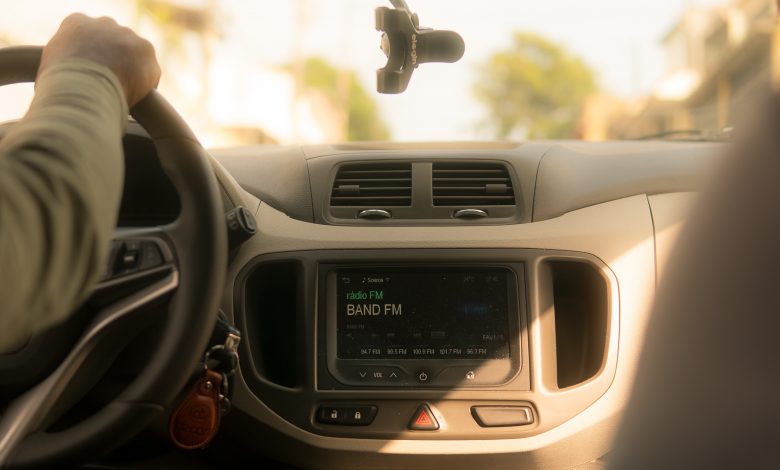
Getting a car can make a college student’s life much more productive. For example, they could save money and move to a cheaper off-campus apartment or house. To clarify, a vehicle removes the transportation barrier. In fact, a car might make it possible for a student to find a part-time job and earn an income. Furthermore, with an auto-vehicle, you have access to more locations, stores, and facilities. But how can a college student buy a car without any credit?
After all, consumers who are in their late teens or early twenties barely had a chance to establish a credit history. Equally as important, not having a car, in itself, can be an obstacle that prevents you from building your FICO score. That is to say, if you can’t save money on rent or generate earnings from a job, you can’t qualify, let alone pay, for a credit card.
Believe it or not, however, your GPA can help you obtain an auto loan, regardless of what your FICO score is. Firstly, good grades demonstrate that you’re hard-working and reliable, which is what credit is all about. Secondly, there are certain auto-leasing programs that specifically cater to students who look after their GPA. In addition, even if you have an established FICO score and decide to go through a traditional lender, notable grades strengthen your application.
Student Car Loans
Certain financial firms focus on helping students qualify for a car lease. More specifically, these lenders look beyond your credit score. Instead, they take an applicant’s GPA, major, work history (if any), and other aspects into consideration.
For example, an undergraduate student is majoring in business administration and minoring in marketing. When they applied for a car loan, the student just finished their third year and had an overall GPA of 3.4. During the summers that followed their freshman and sophomore years, they had a non-paid internship with a local digital marketing company.
To the lender, the student may be a reliable borrower because their GPA is strong. Moreover (and equally as important), a business administration degree, which the student is close to attaining, is heavily demanded by employers. Their professional experience, although non-paid, shows that the applicant is even more likely to get a well-paying job after they graduate.
The student may not have a credit history and their FICO score could be lower than average. However, to these lenders (who specifically cater to college goers), your grades, work experience, and major matter.
How can a college student buy a car if they have bad grades?
If your GPA isn’t remarkable, these firms might still work with you. Firstly, as previously mentioned, they consider several parts of your application. A strong work history, for example, could make up for a grade deficit.

Secondly, many lenders have flexible requirements. Some may only accept applicants that have a 3.0 GPA or higher. Yet other firms may approve you with a 2.0 GPA, for instance. This figure isn’t standardized across the board, which keeps the door open for many students.
How can a college student buy a car without an expensive down payment?
In short, the better your GPA is, the lower a downpayment you may get. The same could apply to interest rates, but both of those depend on the lender’s policies. Either way, the challenging part is that the student-specific loans have a relatively sizable down-payment. Traditional banks and financing firms, for instance, typically want applicants to pay 20% the car’s value upfront. Student lenders, meanwhile, will have a much larger down payment policy.
However, this option might be more doable than building credit, especially since the process could take years. A solid GPA, meanwhile, gives you room to lower the downpayment and entertain non-traditional borrowing options. In fact, if you want to live off campus, you could use your student loans to meet this requirement. After all, transportation to/from class is part of your educational expenses.
How can a college student buy a car if they have decent credit? Do grades still matter?
They certainly do. Traditional and college-level auto lenders, alike, still care about your GPA, major, and work experience. To give an example, let’s assume that an undergraduate degree holder locks in a job after they finish school. Additionally, the recent graduate got a new credit card and built their FICO score.
In this case, the student might not struggle to qualify for a car lease, whether its from a large bank or a non-traditional firm. Yet the interest rate comes into play. With a higher GPA, you are much more likely to convince the lender to reduce your interest payments. Keep in mind that the rate represents the amount of risk that the firm is taking when they lend you money. Good grades demonstrate that you are reliable and, therefore, not a risky borrower.
Similarly, graduate degree candidates with professional experience and students who work part-time can use their GPA to complement income or credit information. This is even more important if they are on the brink of meeting the requirements. As an example, to borrow money for each a new and used car, consumers must have an average credit score of 717 and 661, respectively.
To put that into perspective, the typical college student has a FICO score of 630. This is just below what they need to qualify for a used auto lease. A strong enough GPA may be enough to tip the lender’s decision in your favor. Low grades, on the other hand, could become a hurdle.
On the Road
How can a college student buy a car if they have good grades? In short, they may work with lenders who cater to borrows with no/bad credit, negotiate a lower downpayment, and use their GPA to further strengthen future applications.

Going forward, treat your grades the same way as your credit score. Each of them is only a number, but they demonstrate how credible you are and whether or not you take commitments seriously.



